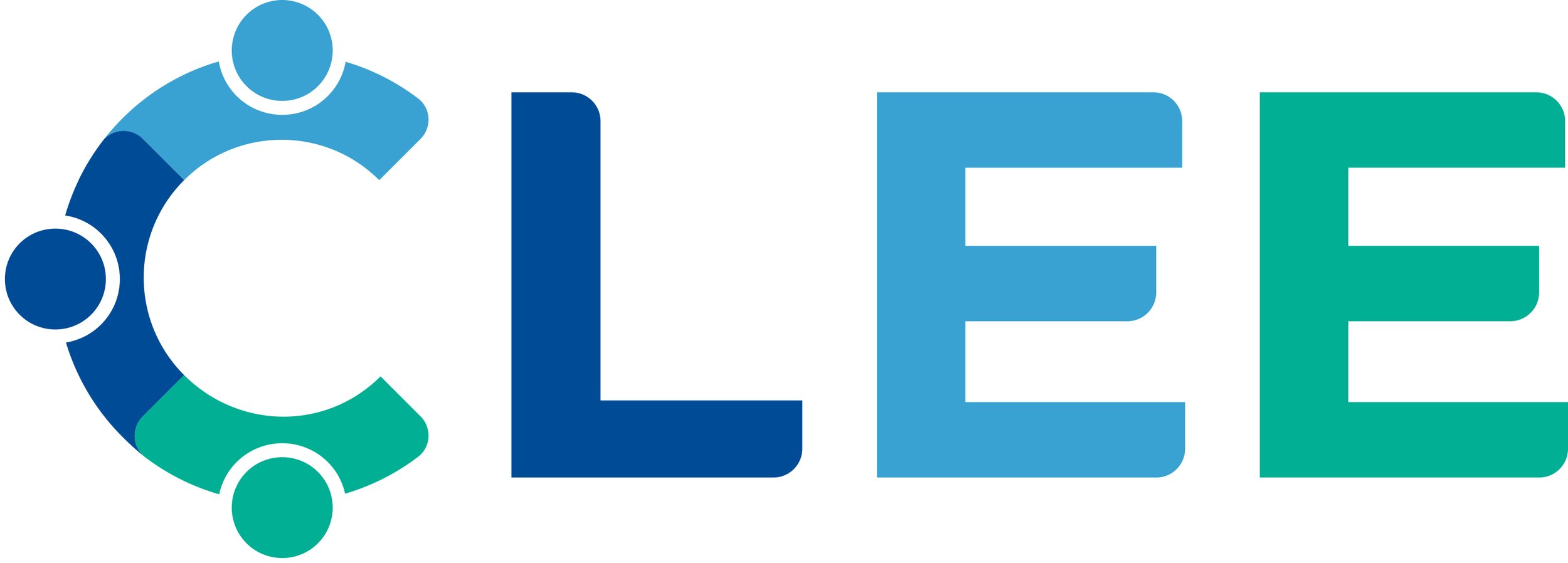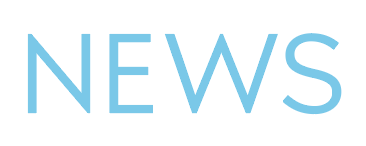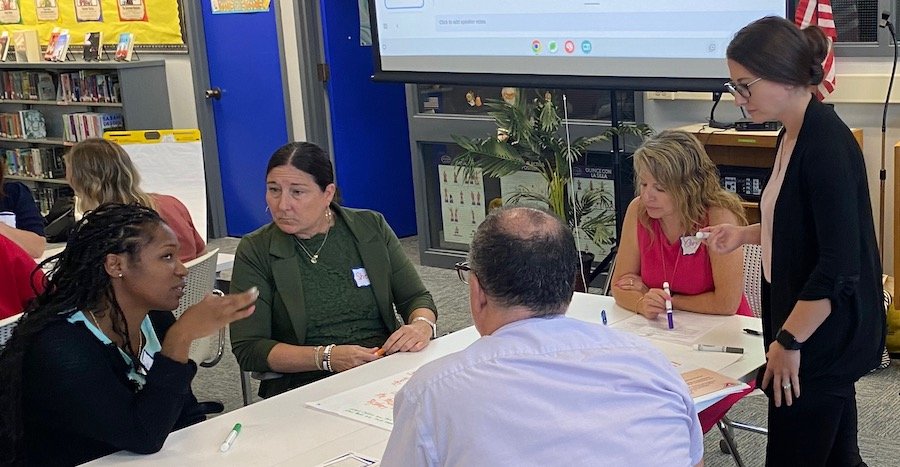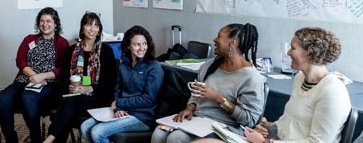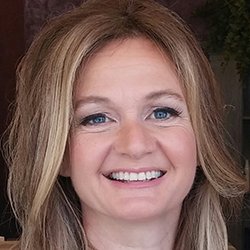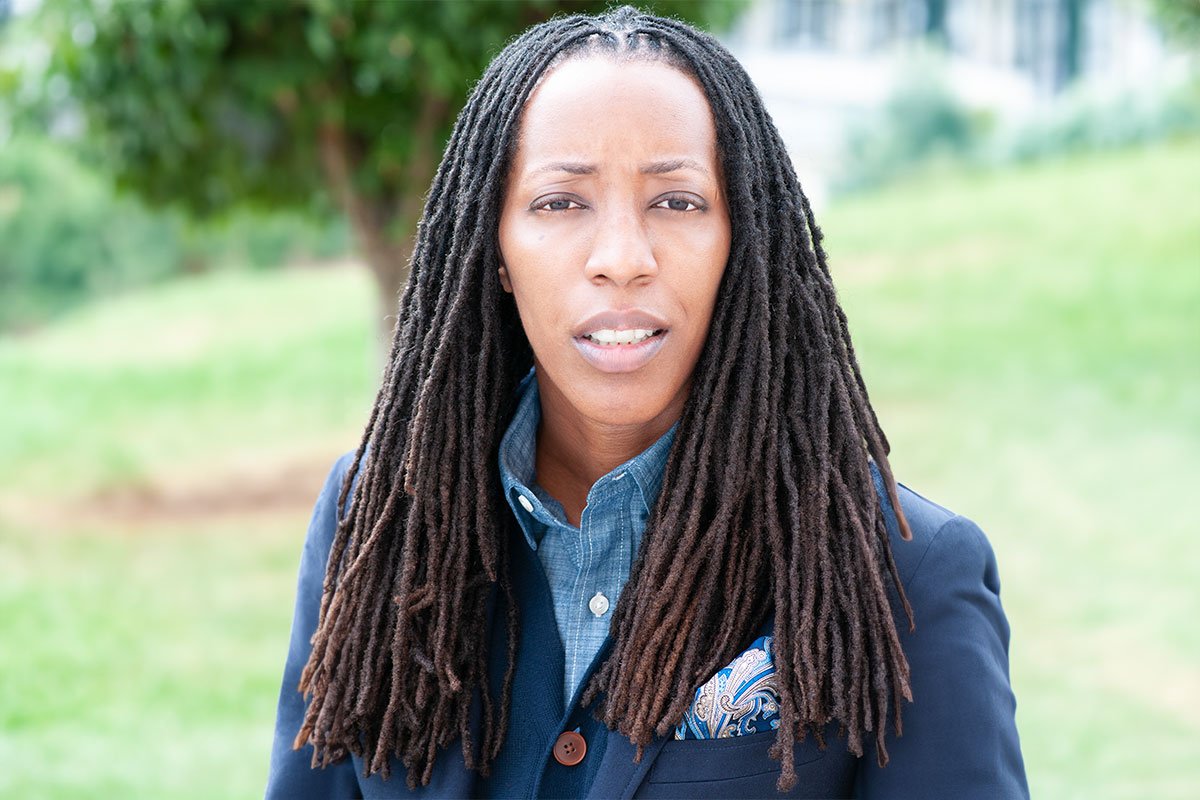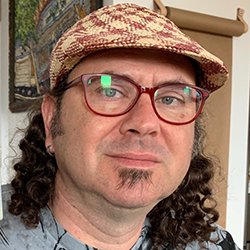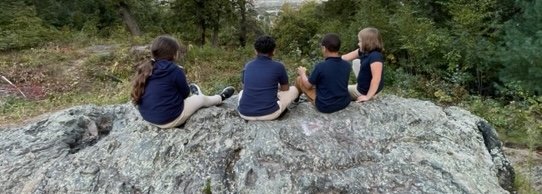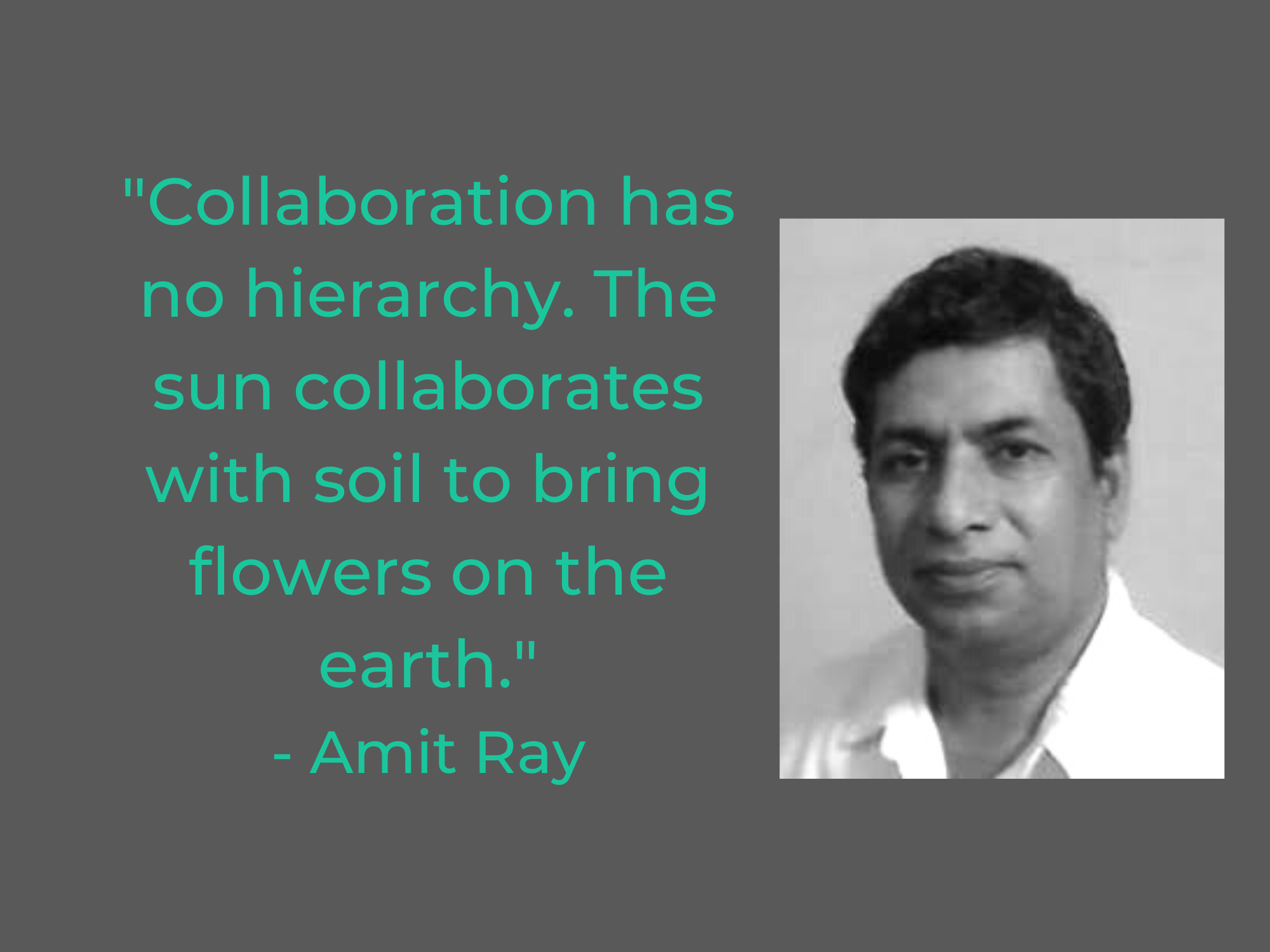February 2024
Our collective power expands when we support each other to foster the unlimited potential of each and every student.
Who are Courageous Conversations for?
While personal transformation can happen in dialogue, systemic change requires collaboration.
To advance equitable educational outcomes, educators need to have direct conversations about why pervasive, disproportionate outcomes exist for underserved students (by race, income, perceived ability, and language). That used to be a controversial statement, and in some places it may still be. However, having these conversations can transform adults. They can make identities explicit, uncover hidden biases, and help educators identify inequities and strategies to overcome them in their school. However, they cannot be transformative if they only focus on educators.
We have found that to be successful, these conversations must happen within a school community and hold a steady focus on impacting the most persistent disproportionate outcomes for underserved students. While personal transformation can happen in dialogue, systemic change requires collaboration. We must work together to transform schools into spaces for success for each and every student.
Calling for educators to transform education is a gigantic ask. It can feel overwhelming. There are so many factors outside of our control that can impact schools and student outcomes: politics, economics, geography, and history. However, there is a powerful engine to drive student success that is within our realm of influence: the Instructional Core.
The Instructional Core refers to the triad of how students are engaged, what teachers do, and the rigor of the content. It is where we can prioritize key improvements to improve outcomes for students who have been underserved and marginalized. In collaboration, we can co-create goals and implement improvements to the Instructional Core. When we focus on learning and teaching, we can impact student success.
Collaborating with educators with an explicit focus on improving the Instructional Core must happen in concert with courageous conversations about race, equity, identity, and bias. When collaboration turns the corner to impact practice, classrooms, and educators, it gives us power and agency to make changes, even if they are small, to improve outcomes for all of our students. It prioritizes this work to benefit students.
Ready to take a small next step? CLEE’s expert adult learning design, protocols, data analysis tools, and coaching support services can provide the structure for innovative educator practices to align and impact each and every student. CLEE is offering a taste of this collaboration with a focus on improving student outcomes with three upcoming free virtual sessions, Leading Collaboration for Equity Series:
-
Questioning as a Tool to Interrupt Bias – Thursday, March 7, 2024 4-6pm (Eastern)
-
Integrating Equity-Centered Data Routines into Adult Collaboration – Thursday, April 25, 2024 4-6pm (Eastern)
-
Analyzing Student Work to Drive Improvement in the Instructional Core – Thursday, May 9, 2024 4-6pm (Eastern)
Invest in Yourself as an Equity Leader
Become a Certified Principal in Rhode Island in Just 11 Months
NOW is the best time to invest in yourself and your career to become a well-trained Equity Leader. There are always obstacles to taking time for yourself, especially to transform your professional practice. You are worth the investment. The sooner you embark on this journey, the greater the impact you will have on students, families, and the school community.
For over 20 years, CLEE’s Principal Residency Network (PRN) has been the top-ranked accreditation program in Rhode Island, with a 92% placement rate. Don’t put off investing in yourself and increasing your impact in education.
In the words of a recent Principal Residency Network (PRN) grad who balanced completing the PRN, leading in their school, and growing a young family:
When I began the PRN, I had a little one at home; he was less than a year old. I was doing the work of an administrator in my residency. I knew I wanted to have more kids and I knew it was not going to get easier the longer I waited, so I just had to do it. I unexpectedly found out I was pregnant shortly after starting PRN. CLEE worked to give me the flexibility I needed to finish the program on time.
I want to stress that there’s never going to be a perfect time in your life to do something like this. There’s never going to be that perfect year where nothing else is going on. If you believe in yourself, you will do it.
New Year for Resolutions as a PDSA
Learning from the Equity Leader Accelerator Program
We are excited to share learning and resources from our innovative USDOE-funded program, Equity Leader Accelerator Program (ELAP), currently underway in Massachusetts.
CLEE is supporting early career principals to enact MA DESE’s Anti-racist Leadership Competencies while concurrently supporting experienced leaders to serve as mentors in our 12 partner districts.
As I think about setting my New Year’s resolutions and goals, I am struck by the similarities between generating a resolution and the Plan Do Study Act (PDSA) cycle CLEE uses with schools to implement improvements. Many of us set goals – whether to exercise more, lose weight, volunteer, etc. We generate plans to reach our aspirations, take action, and evaluate if our plans work. Yet, when we endeavor to do the same in our professional work by using an intentional process – goal setting, plan development, and monitoring – it can appear overwhelming, leaving us wondering where to begin, or worse, causing our initiatives to stall.
Breaking down your goal into bite-sized action steps can make the process more manageable. Taking that first step toward progress feels good. Using the PDSA to process data to set goals, take small action steps, and measuring results helps us feel empowered because we are taking action. That is important, because we are channeling our leadership energy to effect change for the benefit of our students.
Think about your own goals for the rest of the school year – what is it that you would like to accomplish? What will your bite-sized action steps be to get there by June?
Denise Milburn, Continuous Improvement Facilitator and Coach
Talking Racial Justice in Education, Solidarity and Radical Ideas with TC’S Bettina Love by Sherri Gardner
Bettina Love (Photo: TC Archives)
I am inspired to share a few of my favorite quotes from this interview:
“Anti-Blackness is not bigger than Blackness. Never question your genius, your humanity, your intelligence, your beauty. Never question it.” – Bettina Love, with words of encouragement for Black students.
This powerful quote is highlighted in the interview by author Sherri Gardner with Bettina Love, professor and racial justice scholar. This interview is an important read for everyone. For people who identify as Black, Indigenous, and/or People of Color, it is a reflection on the experience of moving through a conventional world inflected and organized by white supremacy. For everyone who wants to understand what it means to struggle and succeed, and what the future holds for us as we struggle together, it is a thoughtful and incisive conversation about what it feels like to push for equity in our communities and society.
“The thing about that keeps me hopeful is that whatever Black folks come up with…to change this nation, it will be for everyone. At the end of the day, we will make this country better, because we’ve always thought about ways to make this country better.”
It reminds me of one of my favorite books by W.E.B. Du Bois where he explains to readers the contributions of Black people to the development of our country, in particular during the era after the Civil War where there was opportunity to imagine new ways of being for our economy and political structures. The original title of the book was going to be [The] Black Reconstruction [of Democracy] in America though the White publishers shortened it to Black Reconstruction in America, fearful that the original title was too bold for the public, and hiding the radical and successful institutions Black people built that are a model for all of us who cherish democracy. Bettina Love reminds us that in the 21st century we must remain vigilant to highlight and learn about the contributions of Black people as much as others to the development of our country and society.
– by Ben Doren, CLEE Continuous Improvement Coach
“The best answer I have is to organize. Parents and teachers and students and folks who believe in justice, believe that teaching Black history is teaching American history, we have to be organized…”
This last quote is the clear direction for all of us who know equity is the guiding principle for our work for justice in our communities and in our schools. It is only if we organize in solidarity that we will succeed together, for all of us. I am humbled to be reminded that organizing is hard work, but it is also the essential work we must commit to doing as educators who seek equity.
Community Success Needs Community Planning
A school or district improvement plan can just be another requirement or it can be an opportunity to set direction for increasing equity. CLEE’s strategic planning services engage stakeholders in a collaborative process to share their perspectives and help define strategic priorities. This tailored process guides you and your colleagues in identifying high-priority goals and strategies that increase learning and equity for each and every student. Together you construct a clear guide for the next phases of improvement.
HOW ONE CHARTER NETWORK WAS IMPACTED
The Paul Cuffee School (PCS) is a K-12 maritime-themed public charter school in Providence, RI. PCS used CLEE’s strategic planning services to identify key goals, priorities, measurable outcomes, timeframes, and action steps that guide and inspire the PCS community into new ways to live their mission, vision, and goals.
CLEE provided facilitators who were committed to inclusive processes throughout the strategic planning timeframe. The ongoing success of our strategic planning implementation phases can be attributed to the dedication and hard work of a diverse community of stakeholders.
The investment of community members across the district is remarkable and enduring. You can see and hear evidence of the plan living in classrooms, at Board meetings, at committee meetings, and in conversations with the school community and extended community. These groups connect with one another through the direction set by the 2021-2026 Strategic Plan goals and priorities.
As a result, this sense of community authorship has led to broad commitment in delivering on our promise, which is to unleash the full potential of every student.
– Christopher Haskins, Head of School, the Paul Cuffee School
We would love to have a conversation about your goals, dilemmas, and questions. There is always a tension between where we are and where we want to be. That can be a creative tension to help inform and push you toward your goals. It is never too early to plan for the future, and the 2024-25 school year is fast-approaching.
Each month, CLEE offers a question or two to help you reflect on what you are experiencing. Thinking about the importance of questioning and what your answers mean is one more step in your growth as a leader for equity.
Join CLEE on social media to follow the monthly questions and share your answers.
What small steps are you taking to collaborate to increase equity in your setting?
The Resource book is back!
The Resource Book is a selection of protocols curated into a spiral-bound book and organized into sections, ideal for both new and experienced practitioners who want easy access to our most popular tools.

